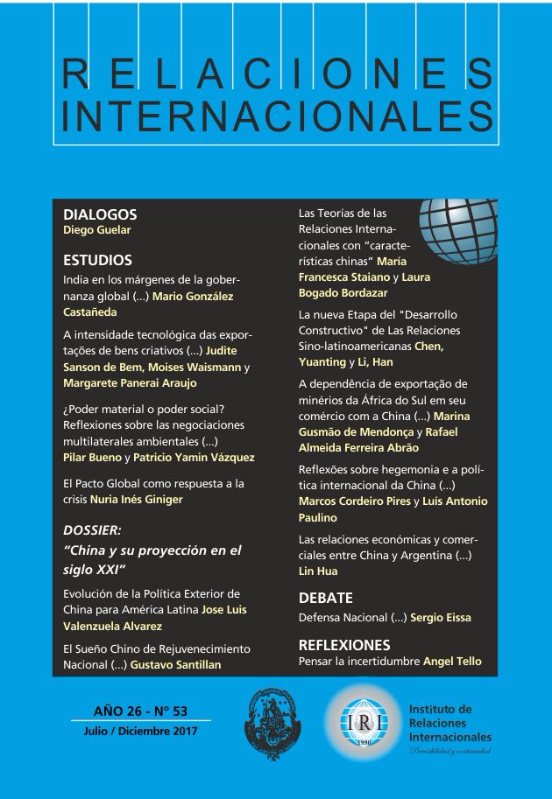Global Compact as a response to the crisis
DOI:
https://doi.org/10.24215/23142766e013Keywords:
Hegemonía, Pacto Global, Responsabilidad Social Empresaria, Estrategia cultural, Organización de Naciones UnidasAbstract
With the reforms of the mid-70s began a transformation of the international correlation of forces, which led to an economic, political and social process known as Neoliberalism. These policies resulted in unemployment and global impoverishment. However, the crisis of this imperialist strategy was swift and people resisted dispossession in various ways. The crisis process inaugurated at the beginning of the century has global implications and a civilizing scale. In Latin America, the accumulation of popular resistance experiences, which addressed different issues, developed with the construction of political alternatives. Dominant sectors, thus, were forced to redesign the strategy so as to regain the offensive as well as to placate discontent and dispute. This process has two organic axes: the reconfiguration of consensus and the repressive movement. This paper attempts to analyze the Global Compact as one of the international hegemonic strategies to face the crisis, through the study of sources and documents produced by the United Nations and its agencies, as well as through the fieldwork carried out by the Author.
Downloads
Downloads
Published
How to Cite
Issue
Section
License
Aquellos autores/as que tengan publicaciones con esta revista, aceptan los términos siguientes:
- Los autores/as conservarán sus derechos de autor y garantizarán a la revista el derecho de primera publicación de su obra. A partir de noviembre del 2020 los artículos se publicarán en la revista bajo una licencia Creative Commons Atribución- NoComercial-CompartirIgual 4.0 Internacional (CC BY-NC-SA 4.0). Acorde a estos términos, el material se puede compartir (copiar y redistribuir en cualquier medio o formato) y adaptar (remezclar, transformar y crear a partir del material otra obra), siempre que a) se cite la autoría y la fuente original de su publicación (revista y URL de la obra), b) no se use para fines comerciales y c) se mantengan los mismos términos de la licencia.
Previo a esta fecha los artículos se publicaron en la revista bajo una Licencia de reconocimiento de Creative Commons (BY-SA 2.5). - Los autores/as podrán adoptar otros acuerdos de licencia no exclusiva de distribución de la versión de la obra publicada (p. ej.: depositarla en un archivo telemático institucional o publicarla en un volumen monográfico) siempre que se indique la publicación inicial en esta revista.
- Se permite y recomienda a los autores/as difundir su obra a través de Internet (p. ej.: en archivos telemáticos institucionales o en su página web) antes y durante el proceso de envío, lo cual puede producir intercambios interesantes y aumentar las citas de la obra publicada. (Véase El efecto del acceso abierto).

























